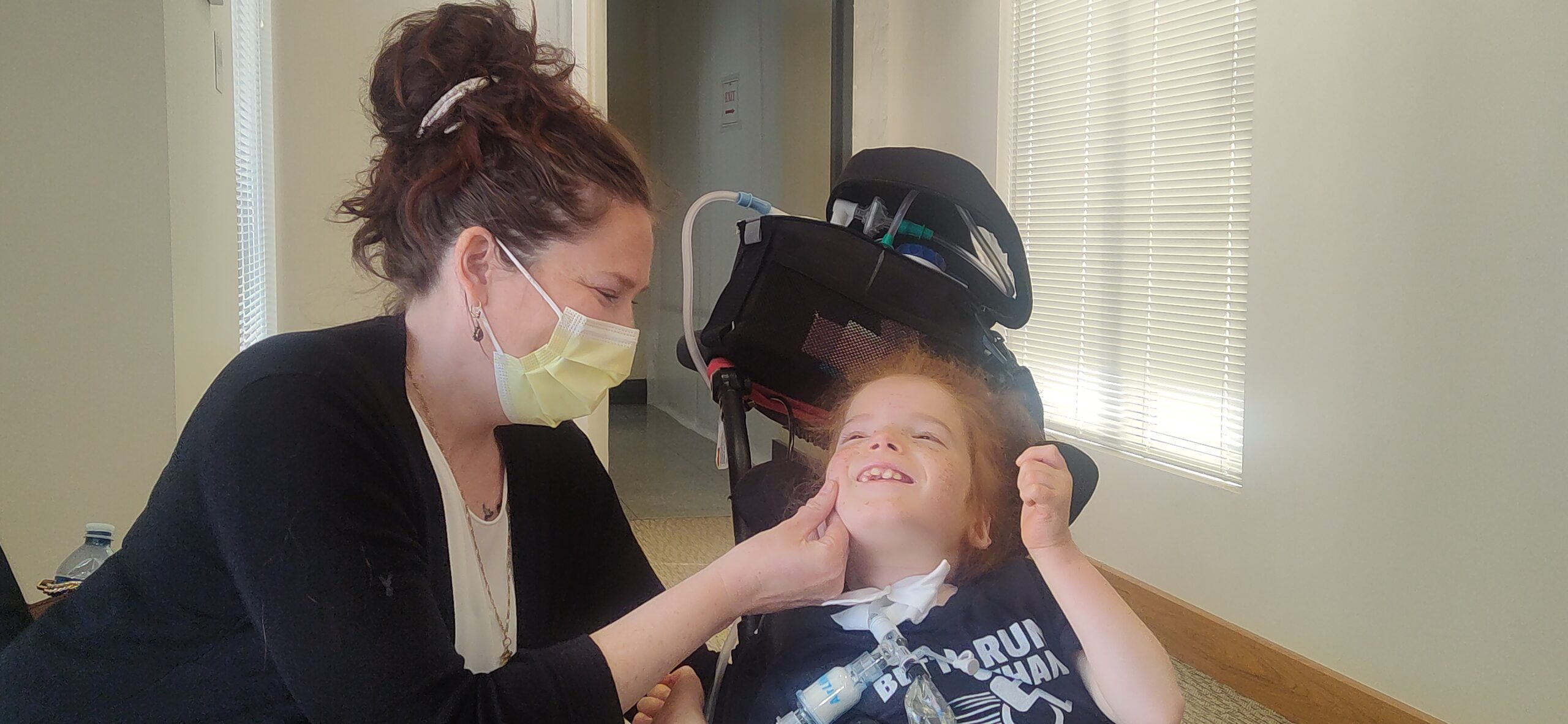Cari Ross watched lawmakers from the Senate gallery on Friday, sitting next to her red-headed 8-year-old son, Tency, in a wheelchair.
Tensy is kept alive by a breathing tube connected to a machine, a separate tube feeds her, and she suffers from seizures and other health problems that require round-the-clock care.
Tensy has primordial dwarfism, a growth disorder that caused him to weigh just 3 pounds at birth, and he also has end-stage heart and lung disease. His cardiac arrest cut off oxygen to his brain for 33 minutes, leaving him unable to walk.
After senators unanimously passed Senate Bill 91, Cari Ross said her son will be able to spend more time with his parents because the bill pays parents to care for children with severe intellectual and developmental disabilities.
Ross’s husband, Dayne, works around 90 hours a week as a chef in two restaurants to help the family make ends meet while Sherwood looks after their son, and they hope that if the bill passes, his hours will be reduced.
“Senate Bill 91 is going to change our lives,” Ross told the Capital Chronicle after the vote. “It’s kept us busy, but it’s going to allow my husband to take time off and get another job done, and I’m finally going to be able to sleep.”
The bill now heads to the House of Representatives, which must vote on it by Sunday when the House of Representatives recesses for the year. Supporters and lawmakers have been working on it for more than two years to get to this stage.
The bill extends a program that began during the pandemic and ended in May. During the pandemic, Medicaid provided benefits to parents caring for children with severe developmental or intellectual disabilities, but those benefits ended on May 11. About 700 children classified as most in need were covered by the program.
The bill would allocate about $3 million to the program, which the state must get approval from the federal Centers for Medicare and Medicaid Services, and would add an estimated $7 million in federal matching funds.
According to a legislative analysis, state and federal funding would be enough to cover about 200 households, but that number could change depending on how much each eligible household uses the program.
Parents would be paid the same wage as professional caregivers, typically around $20 to $22 an hour.
Lawmakers and parents said the bill is a start and acknowledged there is a bigger need than the funding can cover.
“We may need to put money back in over time to serve more people,” said Sen. Sarah Gelser Bruin, a Democrat from Corvallis. “We just need to figure out how to make this work so that it meets the need.”
Senator Gelser Bruin, who authored the bill and introduced it on the Senate floor, thanked supporters and families who helped craft it.
House Minority Leader Tim Knopp, a Republican from Bend, praised the bill and said he hoped the state would put more money into the need. Knopp had introduced a bill that would have opened the program to about 10,000 children with disabilities, rather than limiting it to those most in need. The bill died over concerns about the cost.
“You can imagine the stress that comes with thinking about where your next meal is going to come from, your next rent, your next house payment, especially if you don’t have the funds,” Knopp said.
Ross’ family participated in a pandemic response program, and although they’ve saved some money, their budget will be tight until the state reopens the program.
The program would be overseen by the Oregon Department of Human Services, but specific rules are still needed on eligibility requirements and how to enroll.
Now that the pandemic is over, it’s difficult, if not impossible, for families to hire caregivers for their children, which leaves parents in a worse position than they were during the pandemic when they were able to receive federal benefits, said Shasta Kearns Moore, a member of Disability Advocates, an Oregon-based advocacy group for parents and children with disabilities.
“This is the support our children need to survive and thrive in their communities,” Kearns Moore said.
Meanwhile, Ross wants Oregonians to remember that children with disabilities are a broad community and not easily identifiable like her son.
“It’s easy to look at Tensy and say, ‘This is a kid who needs help, she needs support,'” Ross says, “but there are a lot of invisible obstacles. It’s much harder for families who need the same support to get the same support.”
Get morning headlines delivered to your inbox
subscribe

